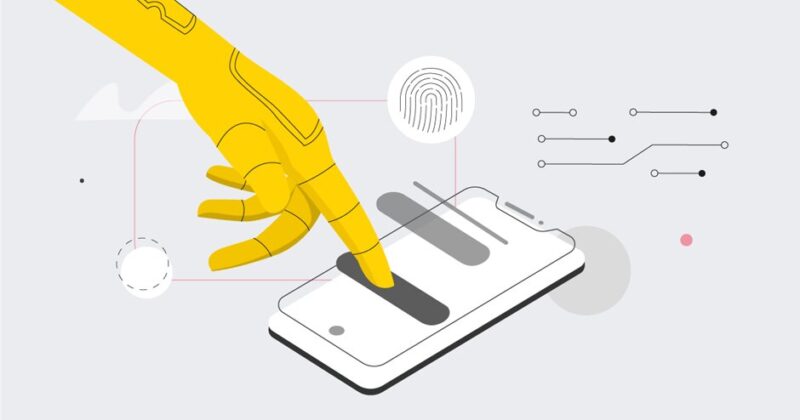Before being released to the general public, every product, regardless of industry, must pass a series of rigorous tests. This is true for anything from a straightforward object like a cardboard box to a far more intricate product like the most recent electric vehicle.
The same is true for your phone’s mobile applications. And good for you if you haven’t given that much thought! This indicates that the QA team responsible for the app’s functionality performed its duties and produced a flawless user experience that met all of your expectations.
However, that is not generally how it goes, and portable application testing is just developing more perplexing. AI will eventually solve that growing issue. Top mobile app testing companies incorporate artificial intelligence while testing.
On the off chance that your application didn’t proceed true to form, you — and numerous different clients like you — may erase it and continue to the following application that vows to do the same thing. For the tireless teams working behind the scenes to ensure a successful app launch or update, this is a total disaster, even though it may not seem like a big deal to you as a user.
In the mobile app industry, the proverb “You only get one chance to make a first impression” rings very true. Users simply have no incentive to put up with an app that doesn’t do exactly what it’s supposed to do in this huge, crowded, and competitive mobile app market. After all, for every app, there are frequently several others ready to take your unhappy (previous) users.
This issue is in no way, shape or form confined to little improvement groups lashed for assets. I’m certain you can imagine some high-profile programming lets out of significant organizations that have sent off in a heartbreaking state throughout recent years (especially in the immensely productive field of computer games).
So why is it that when it comes time for testing, some teams cut corners only to regret it later?
The response is pretty straightforward: Up until as of late, versatile application testing has customarily been tedious, complex, and confusing, all also regularly postponing discharges and surprising QA groups.
Let’s examine what this kind of mobile app testing entails, how the landscape has recently begun to shift, and what is on the horizon to make it all more efficient to comprehend this ongoing issue.
Software testing was done entirely manually once upon a time—in a period that seems like it was just yesterday. Quality assurance personnel only needed to take into account a small number of factors to accomplish this: There were just so many use cases and structural elements to consider, and programs were simply expected to accomplish such a great deal.
It’s difficult to envision testing a cutting-edge application physically and it is successful to have the outcome. The strategy only makes sense in very specific situations. Teams today use automated tests, which help them save a lot of time, effort, and money. This is very important for mobile app testing companies.
However, these automation tests accompany their concerns. The majority of these automated tests are hand-coded, necessitating the setup and modification of specialists with computer programming experience. Such experts are expensive and popular, but at the same time, they’re required for later parts of the product advancement cycle, for example, the growing new item includes and administering different parts of creation.
Additionally, this is the point at which businesses begin to disregard both major and minor issues and cut corners. Unfortunately, many teams view testing as a burden or afterthought instead of shifting left, which means testing as early in the cycle as possible. The need for thorough app testing is only made clear when things go awry and they are facing a full-blown crisis.
Artificial intelligence and machine learning enter the picture here. We have known for several years that automated testing will become increasingly necessary to handle increasingly complex apps, and it won’t be long before the cost of complex testing scenarios will simply become prohibitive for a lot of developers.
Fortunately, advancements continue to emerge. These include the much-discussed “no-code” revolution, which broadens the testing base and removes a lot of the noise from software development.

Aimee Garcia is a senior editor at ReadDive. She has 5+ years of experience in Digital Marketing. She has worked with different IT companies.





